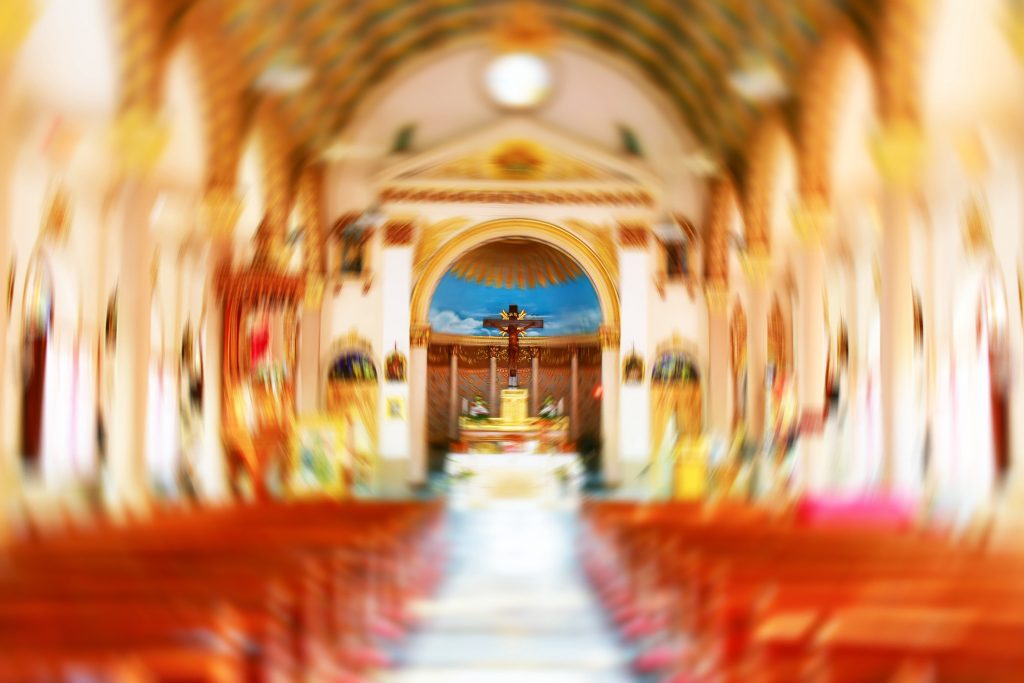
My parents immigrated, separately, to the United States from Haiti in the late 1970s. They met in Washington DC, married, and moved to Maryland where they had two children. It was important to my mother that my sister and I were raised a Catholic even though my father was Baptist. As a child, I experienced organized religion every Sunday with my mother and sister. We would dress up in our Sunday best and attend the local Catholic church. I learned and later loved the rituals of Catholicism.
While in college, I was invested in both my church, by teaching Sunday school and earning my degree in Women Studies. As a Sunday School teacher, I engaged with many other Catholics about our faith and our lives outside of the church. It was through those conversations that many were surprised by my decision to explore feminism. I remember distinctly receiving articles each Sunday, especially from one teacher, highlighting passages on why feminism was wrong and not in tune with Catholicism. At that stage in my life, I was not ready to have a conversation about my decision to explore the history of women, particularly women of color, and the injustices they faced throughout history. I didn’t have the tools or resources to have a productive and positive conversation. So at 19, I slowly started to walk away from the Church. I left the church during my senior year in college.
Since college, I have not gone back to the church. However, I believe that my work in youth development for over 13 years has been guided by my faith. Starting with my experience teaching Sunday School, I have had a strong belief that all young people deserve a quality education. But students of color, particularly African Americans, struggle most with inequitable access to quality education.
So, what does this have to do with Baltimore and justice? Long ago, I felt that there is a needed space for the religious community to talk about social justice issues particularly as the world continues to be complex and challenging. Part of the reason I left my faith community was that I didn’t feel like I had a voice, nor were they ready to hear my voice.
Today, I feel somewhat differently and feel that the Catholic community is starting to recognize the diversity of their community, particularly with the leadership of Pope Francis. Throughout the Imagining Justice in Baltimore Fellowship, using Baltimore as a backdrop, I was surrounded by people with a shared interest in changing the narrative of Baltimore. What binds us Fellows together is the belief that religion has an important voice in helping Baltimore, as a community, move forward. In order to do this, we used the Department of Justice’s report on Baltimore’s police as a foundation to explore the real injustices faced and our voices to discuss how the faith community can play a role in the community.
Although I left the Church, I didn’t walk away from my commitment to faith. Participating in the fellowship has allowed me to continue to build a new relationship with my personal faith and connecting that to my professional and personal belief in the need for equitable access to quality education.
Kathleen St. Villier Hill is Director of the Elijah Cummings Youth Program, and a member of the 2018 ICJS Justice Leaders Fellowship.
Baltimore is part of a national conversation around questions of justice, race, and community. Members of the ICJS Justice Leaders Fellowship consider how Jewish, Christian, and Muslim teachings and practice can contribute to the public conversation about (in)justice. Opinions expressed in this blog are solely the author’s. ICJS welcomes a diversity of opinions and perspectives. We do not seek a single definition of justice between or within traditions.